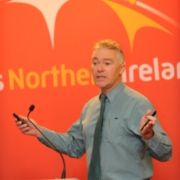Nearly one year on: Northern Ireland’s “super council” reform programme
In April 2015, Northern Ireland underwent a complete restructure of its local councils. Not only were they reduced in number from 26 to 11, with the ambition that this would make them ultimately more efficient, innovative and cost-effective, they also negotiated extra responsibilities with central government; now, Northern Ireland’s “super councils” are equipped to deal with services such as planning, local economic development, off-street car parking and community investment. Previously, the Northern Ireland Assembly had dealt with these services.
There are definite advantages to this newly implemented system, such as enabling local councils and communities to have a greater say in how public services are managed, removing duplication across the complex public service delivery map in Northern Ireland, as well as enabling councils to raise extra funds by realising capital assets, buildings and equipment that are now deemed unnecessary, and exercising new financial powers to borrow in order to develop local economies. However, the new system is still experiencing some teething problems; as the 11 new councils restructure their teams and introduce new roles to accommodate their expanded services, there is a clear need for a collective approach to improvement and development, considerable councillor training, new corporate and staff ideologies, and the implementation of performance frameworks. This is where NILGA (the Northern Ireland Local Government Association) plays a key role.
NILGA’s been particularly busy assisting local authorities before and during the implementation of these changes, ensuring that local councils are fully supported during the transition and in the important years to come. To this end, NILGA gained £47 million for councils, which will help to offset the huge investment required to make the changes. This will go some way to ensure that local councils get the best deal possible and that they’re fully supported to implement the new legislation now in place.
Also on the financial side, NILGA have helped councils to benefit from partnerships and investments from either the UK government or the EU to help with some of the expensive transitional costs which are weighing heavily on ratepayers. They’ve also campaigned to alleviate the impact this change has had on current funding, for example advocating the preservation of the £18 million Rates Support Grant, which materially assists 7 councils in areas of deprivation. The key objective is to ensure that councils continue to offer and maintain high quality, productive frontline services at affordable costs, consistently across NI.
Though these actions are helping to support the transition, Derek suggests that this reform will be further supported through access to strong, effective partnerships with central government. To help cultivate this, the Political Partnership Panel was formed, as lobbied for by NILGA. This group works to open policy co-operation, and the communication channels between local authorities, central government and NILGA. The partnership allows local councils to anticipate things like civil service reform and cuts before they occur, so that local councils can prepare and even feed into the changes.
Almost 50% of the councillors in Northern Ireland are brand new to the role and though this has revitalised local government, there is a lot of work required to get everybody up-to-speed. Because of this, NILGA have been working to ensure that these new local councils are equipped with the right skills to meet the challenges that come with their new responsibilities. Some of the services they have been offering include courses in community planning, and service training in areas that are new to the councils, Also, for the first time, many councils are now bringing in APSE performance networks to monitor each local council’s performance in terms of cost, quality of service and productivity.
It’s expected that NILGA’s services will help local councils to plan appropriately, control their funding effectively and allow them to remain independent from the decisions of Northern Ireland’s central government. In terms of the future, NILGA wants to ensure that the 11 super councils play a sizeable part in the next Programme for Government, and will fight for their right to do so. These councils are now the drivers of frontline economy, planning and public service needs and as such, they need to be protected and sustained appropriately.
It’s a big ideological change for Northern Ireland’s local and central government, as well as for NILGA, and it is definitely testing the councils’ resilience. It doesn’t help that these changes have also come at a time of austerity and more budget cuts. Overall, however, this restructure is a positive step and signals a new beginning for Northern Ireland. In fact, Derek sees the reform as strengthening democracy, not just the powers of local government, and creating the opportunity to develop a more cohesive government, driven by local people. This is a more contemporary, exciting, democratic approach for Northern Ireland, which places local councils at centre stage – right where NILGA wants them to be.


.png)



.png)